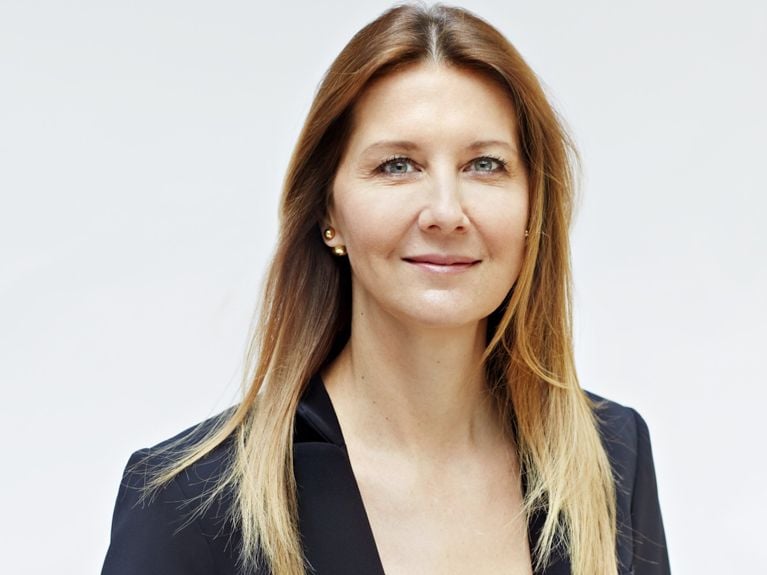‘Price Has Very Little To Do With Skincare’: A Top Dermatologist Gets Real About How To Have Great Skin

Image, Penguin Randomhouse.
Dr. Sandy Skotnicki, a Toronto-based dermatologist, has the secret to great skin: Stop looking for a miracle product.
Skotnicki's book, Beyond Soap, outlines why men and women seem to have more sensitive skin than ever before, and what to do about it. The main problem, according to Skotnicki, is people use products with too many ingredients in them. Most people assume if they don't have a reaction right away, or in the exact spot they apply a product, it means the cream or magic anti-aging potion is agreeable to their skin—not true, says Skotnicki.
In Beyond Soap, Skotnicki tracks how beauty companies have exacerbated some of the very skin problems they claim to solve, and gives readers a clear plan—complete with product recommendations—on how to deal with sensitive skin.

Chatelaine spoke with Skotnicki about the product elimination diet she puts patients on, whether natural products are better for your skin and how much you really need to spend on skincare.
What's the most common misconception about skincare your patients have?
As a dermatologist who specializes in allergies, I get referred a lot of patients who had a reaction to a skincare product or ongoing reactions. The first thing people always think about is their food. “Is it gluten? Is it dairy? I tried to cut it out, but it didn't work.”
Of course, food can certainly give you allergic reactions but they don't give you dermatitis. You can get hives like welts, and if it’s an anaphylactic type of food reaction, you can get swollen lips or mouth, but food doesn't give you eczema type of scaly-itchy rash.
In your book, you write that the rise of hand and body soap was parallel to the “kill-all” approach to germs in medicine. Those views have evolved, so how should people think about germs on their skin?
Think of your skin like a movie theatre and every seat in the movie theatre is occupied by a good organism like a good bug. When you use antibacterials or you're cleaning a little bit too much, you're killing them off, you're emptying those seats. What we realize now is that it's not about good and bad—it's about the balance. The good guys keep the bad guys away and so if you have too many empty seats the bad guys can take over.
There a so many products targeting many different kinds of skin concerns. Are these specialized products good for your skin?
It’s not about your health—these products are not trying to improve your skin health. I would argue that many of them are detrimental to your skin health because [although] one alone might not be a problem, when you accumulate them all together, your skin just hits a threshold and that's when you get irritated. It really is the crux of a lot of what I see [in] is the accumulated effects of multiple products.
You like to put patients who are having skin reactions on what you call a product elimination diet. What is that exactly?
If you look at the most common ingredients in skincare and hair care that cause problems—both allergy problems and irritation problems—you remove them from a list of products [patients]. You have patients use [a] from head to toe. There has to be a list from a dermatologist because labelling can't be relied upon. If labelling could be relied upon, we could, say, go get a hypoallergenic shampoo. But it can't be because there are studies where dermatologists randomly picked 100 products and showed that they were full of stuff that was allergenic even though they were labeled as hypoallergenic.
[Patients] usually get better within two to four weeks. Sometimes it's two days if it's they're really allergic to something.
Most of the products you suggest, like ones from Aveeno and CeraVe, are pretty reasonably priced. Does that surprise patients?
Dermatologists have been saying for years it's not about price—Cetaphil is on most dermatologists' list. I try to give people some options but price has very little to do with skincare: It's all marketing.
People assume natural means better, what are your thoughts on that?
Well, I'm a little biased because I see so many problems from it. I think there's a lot of really great natural products and I think there's a lot of really lousy natural products that don't have science behind them and are allergenic.
There's a knee-jerk response—people think that natural is better. Poison ivy's natural, arsenic's natural just because it's natural doesn't mean it can't be dangerous. So using that as a barometer if you've had a reaction is not a good one. It might be better for Mother Earth but not for your skin.
GET CHATELAINE IN YOUR INBOX!
Subscribe to our newsletters for our very best stories, recipes, style and shopping tips, horoscopes and special offers.